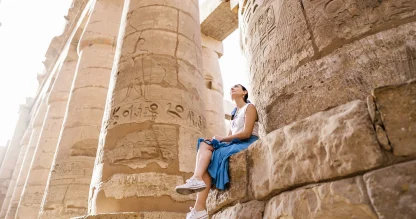The Nubian Village
Introduction to the Nubian Village
Welcome to the enchanting world of the Nubian Village, a place where time seems to have stood still, preserving a culture and lifestyle that is both unique and fascinating. As you traverse the labyrinth of sandy streets, vibrant, color-splashed houses, and the infectious smiles of the Nubian people, you are bound to be captivated by an experience that is as rich as it is authentic.
In an era where urbanization and globalization are rapidly changing the face of our cities, the Nubian Village offers a refreshing glimpse into an age-old culture that has managed to withstand the test of time. It's a place where customs and traditions are passed down from one generation to the next, creating a living, breathing testament to a people's history and way of life.
Whether you're a history buff, a culture enthusiast, a nature lover, or a culinary explorer, the Nubian Village has something for everyone. So, buckle up, and get ready to embark on an unforgettable journey into the heart of this hidden gem.
Where is the Nubian Village? Aswan, Egypt
The Nubian Village is nestled in the southern parts of Egypt, in the city of Aswan. Aswan, a city known for its picturesque landscapes and rich history, is the gateway to Africa and serves as the perfect backdrop to the vibrant and colorful Nubian Village.
The village is a group of small settlements scattered along the banks of the Nile, between the city of Aswan and the Sudanese border. Here, the Nile seems more serene, its banks are lush and green, and the desert's golden sands create a stunning contrast, making it a sight to behold.
Getting to the Nubian Village is an adventure in itself - a scenic boat ride across the tranquil waters of the Nile that sets the tone for the unique experience that awaits you at the village.
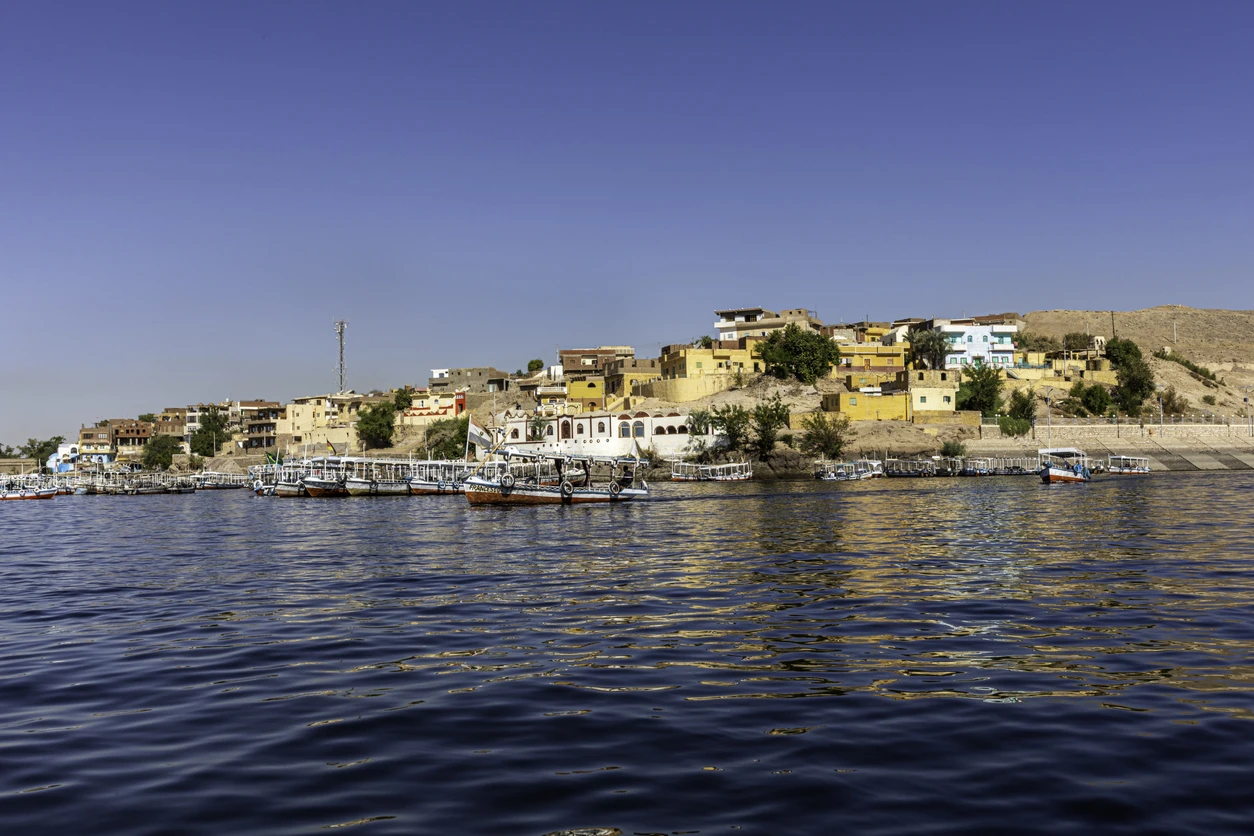
The Rich History of the Nubian Village
The Nubians have a history that dates back to ancient times. They are one of the oldest civilizations in the world, with a rich cultural heritage that has been carefully preserved over the centuries. The Nubian Village is a living museum, a physical manifestation of this ancient history.
Nubia, the region where the village is located, was once a powerful kingdom. It was home to black pharaohs who ruled Egypt and left behind a legacy that is still visible in the form of ancient ruins, fortresses, and tombs scattered across the region.
Despite the forces of modernization, the Nubian Village has managed to retain its distinct identity. This is in large part due to the resilience of the Nubian people, who despite being displaced several times due to the construction of dams, have managed to rebuild their lives while preserving their culture and traditions.
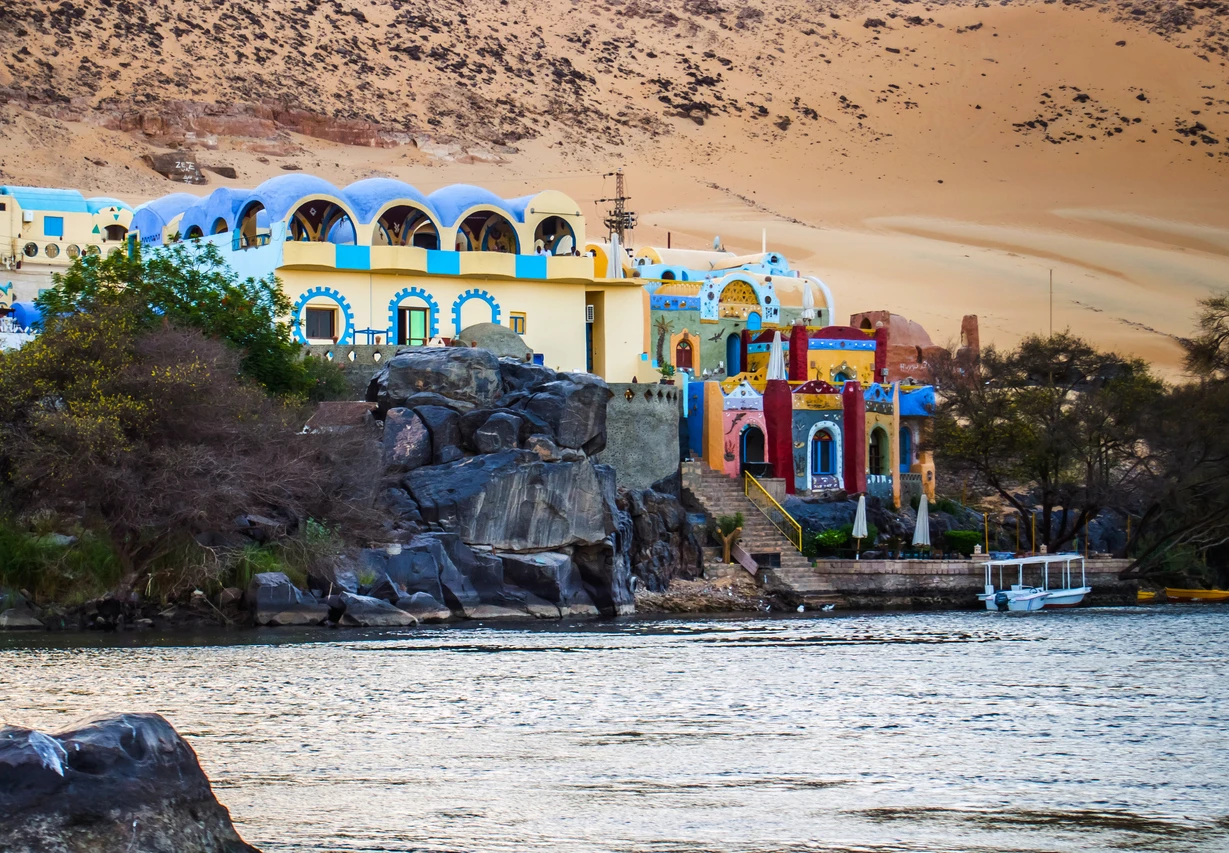
The Unique Culture and Traditions of the Nubian Village
The Nubian Village is not just about its physical beauty, but also its people and their unique culture and traditions. The Nubians are known for their warm hospitality, vibrant music, and colorful art, all of which are integral parts of their daily life.
Stepping into the village is like stepping into a different world - a world characterized by brightly painted houses, women adorned in traditional attire selling handicrafts, and men playing the "Oud", a traditional stringed instrument. The Nubians have their own language, which they proudly speak along with Arabic.
Festivals and celebrations are a significant part of Nubian culture. The most important of these is the "Sebu" or the "Seventh Day Festival", a unique tradition where newborns are celebrated on the seventh day after their birth. The festival is a grand affair, marked by singing, dancing, and feasting.
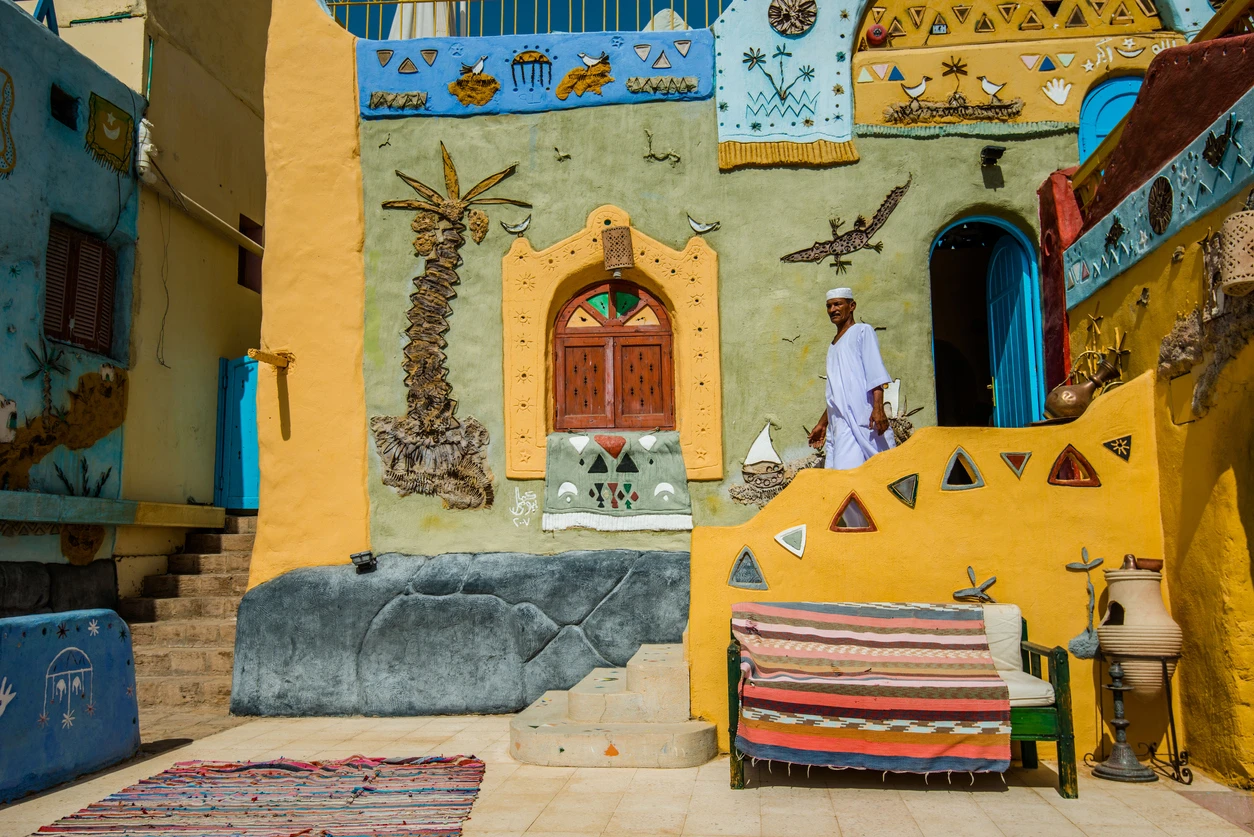
The Unrivaled Splendor of Nubian Village's Natural Beauty
Nestled between the golden sands of the desert and the serene waters of the Nile, the Nubian Village offers a natural beauty that is truly unrivaled. The lush greenery of the Nile banks, the vibrantly painted houses reflecting off the clear waters, and the stunning sunsets that paint the sky in shades of red and orange - all make for a truly mesmerizing experience.
The village is also home to a diverse range of flora and fauna. Palm trees, mango trees, and hibiscus flowers add a touch of green to the otherwise sandy landscape. Bird watchers would be delighted to spot a variety of birds such as egrets, kingfishers, and even the occasional flamingo.
But perhaps the most breathtaking sight is the reflection of the star-studded sky on the Nile's clear waters at night. It's a sight that is sure to leave you spellbound and is a testament to the village's natural beauty.
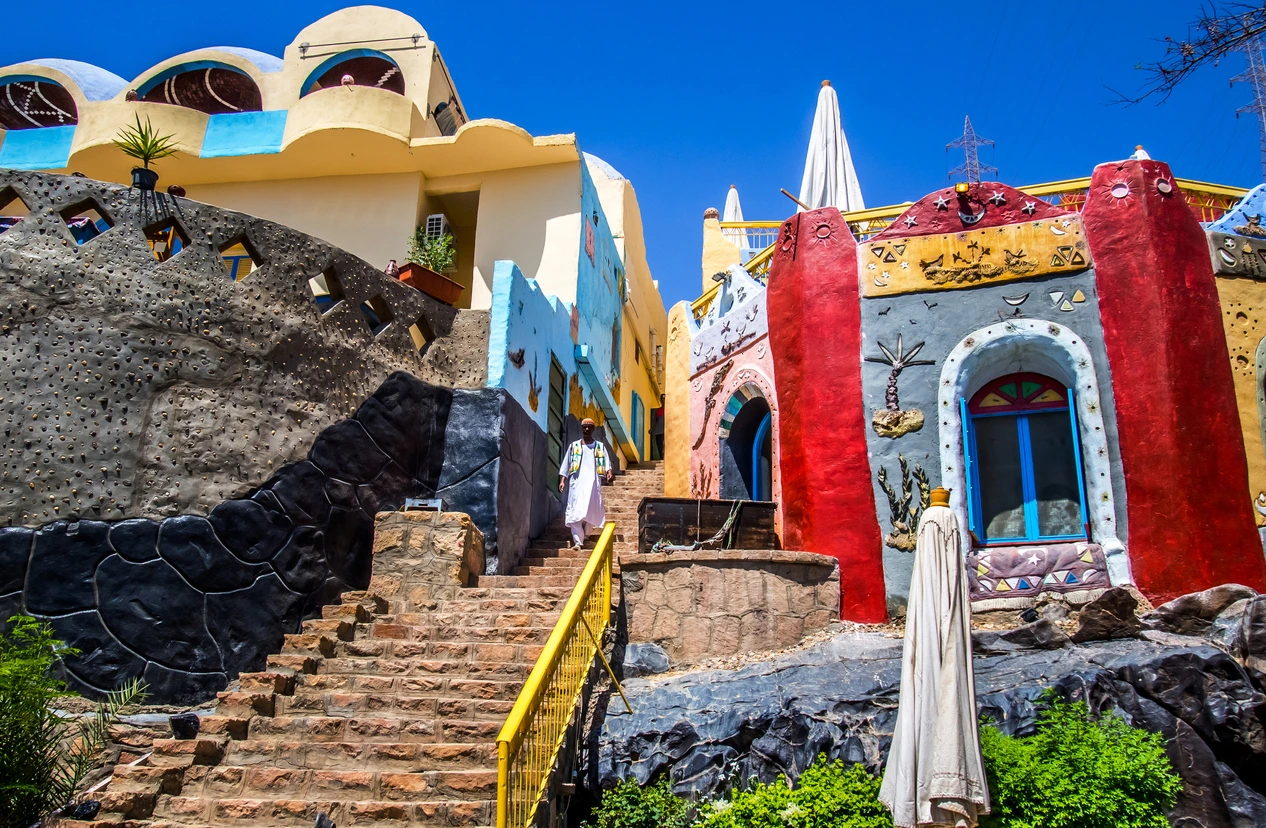
Architectural Highlights of the Nubian Village
The architecture of the Nubian Village is as unique as its people and culture. Characterized by simple yet effective designs, the Nubian houses are built using natural materials such as mud, straw, and stone. Despite the simplicity, these houses are cleverly designed to stay cool in the scorching summer heat.
What sets these houses apart, however, is their vibrant colors. Each house is painted in bright shades of blue, yellow, green, and pink, with intricate patterns and designs that add to their charm. Some houses even have murals and artwork depicting scenes from daily life, adding a touch of creativity and personalization to the otherwise simple structures.
Other architectural highlights include the beautiful mosques dotting the village landscape and the ruins of the ancient Nubian civilization, a testament to the village's rich history.
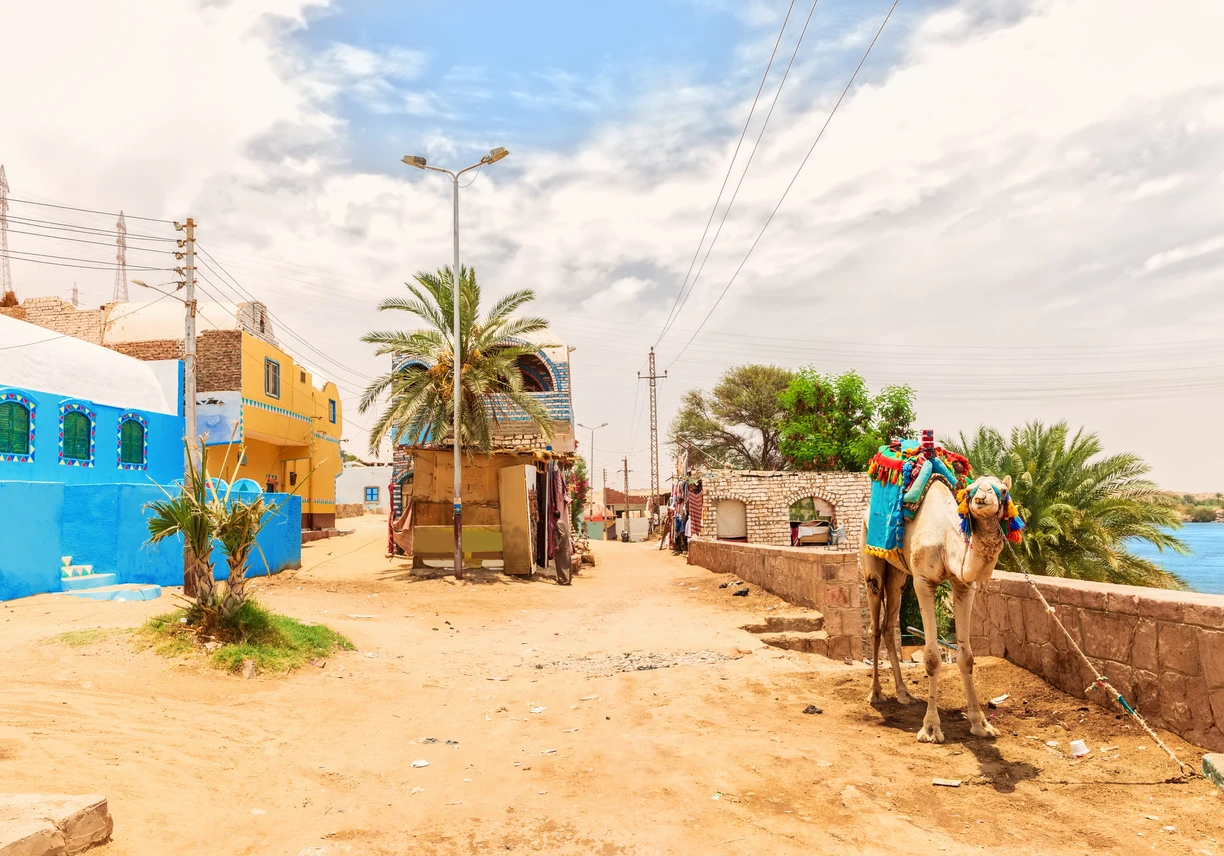
Exploring the Local Cuisine of the Nubian Village
One of the best ways to experience a culture is through its cuisine, and the Nubian Village is no exception. The Nubian cuisine is a delightful mix of traditional Egyptian dishes with a unique Nubian twist.
A must-try is the "Tamiya", a local version of falafel made with fava beans and served with a delicious tahini sauce. Another popular dish is "Molokhia", a green soup made from jute leaves and served with bread. For the sweet tooth, there's "Kunafa", a traditional dessert made with thin pastry noodles and sweetened cheese.
Several local restaurants and cafes offer these dishes, providing an authentic culinary experience. Some even offer cooking classes, giving visitors a chance to learn the secrets of the Nubian cuisine.
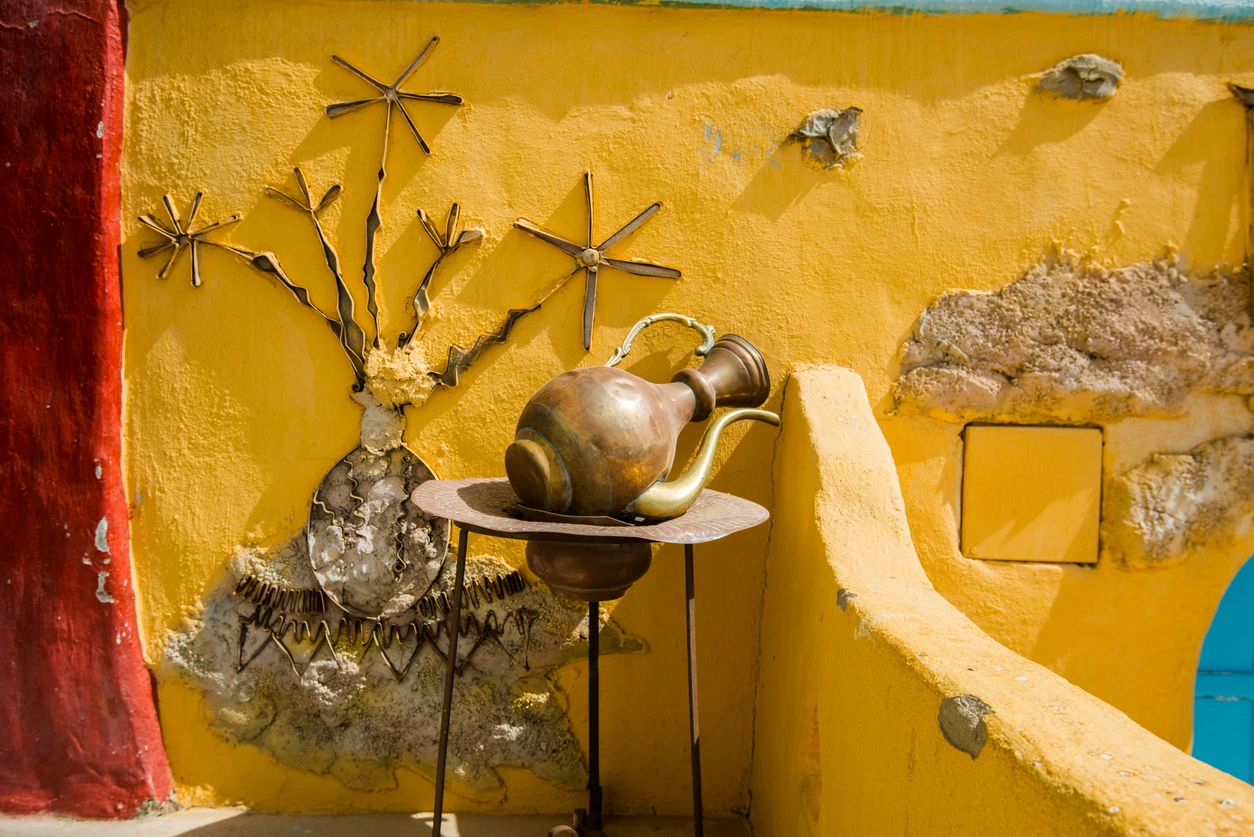
Activities and Experiences at the Nubian Village
The Nubian Village offers a wealth of activities and experiences that provide a deeper understanding of the Nubian culture. From traditional music and dance performances to handicraft workshops, there's plenty to keep you entertained.
A visit to the local market is a must. Here, you can browse through a variety of Nubian handicrafts, from colorful pottery and woven baskets to traditional jewelry and textiles. It's a great opportunity to pick up unique souvenirs and support local artisans.
For those interested in history, a guided tour of the ancient ruins and historical sites is highly recommended. And if you're a nature lover, a camel ride through the desert or a boat ride along the Nile is a must.

Getting to and Around the Nubian Village in Aswan, Egypt
Getting to the Nubian Village from Aswan is fairly easy. The most common mode of transport is by boat, which offers a scenic ride across the Nile. Alternatively, you can take a taxi or hire a car to drive down to the village.
Once in the village, the best way to explore is on foot. The sandy streets are narrow and best navigated with the help of a local guide. Donkeys and camels are also used for transportation within the village, adding to the unique experience.
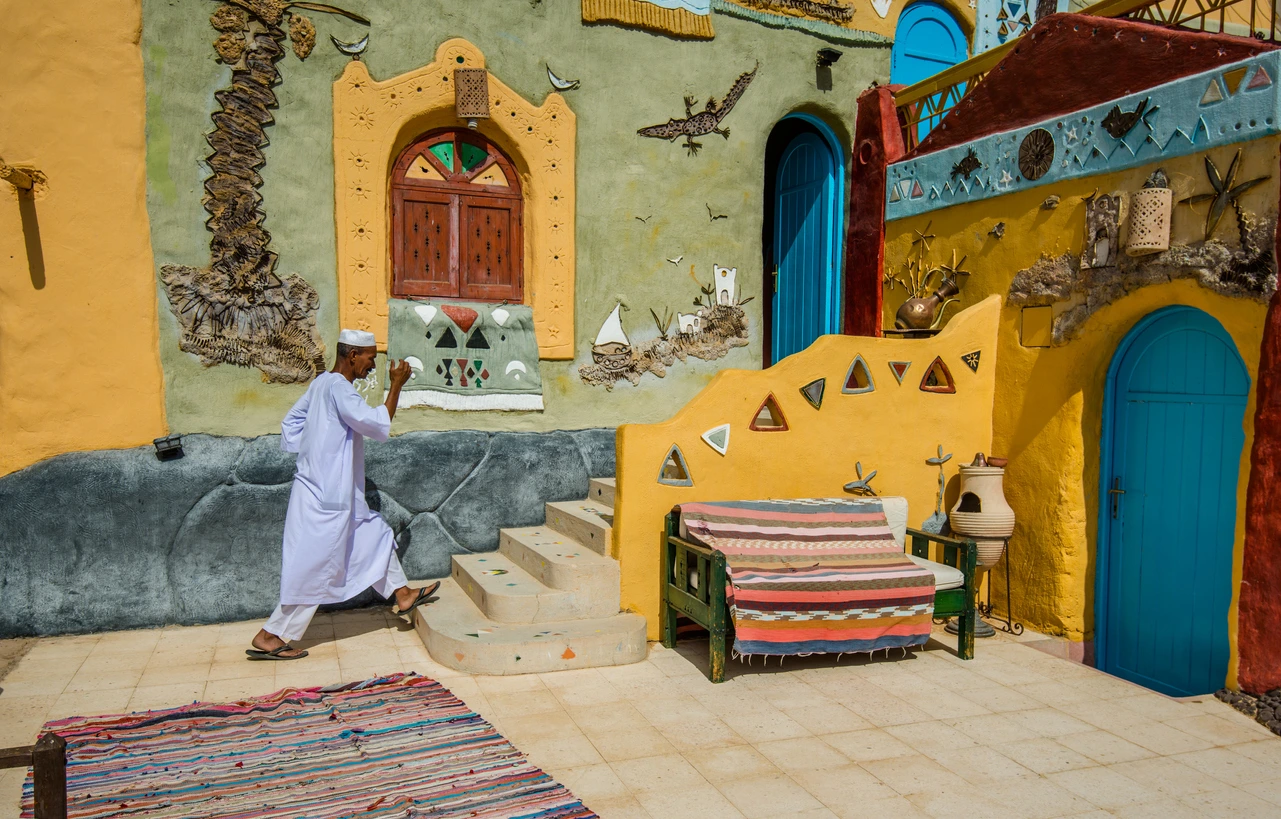
Happy Travellers with Cairo Nile Cruise!
Take a look at our top Egypt Tours reviews, where you will find firsthand insights from our very own Intrepid travellers.


